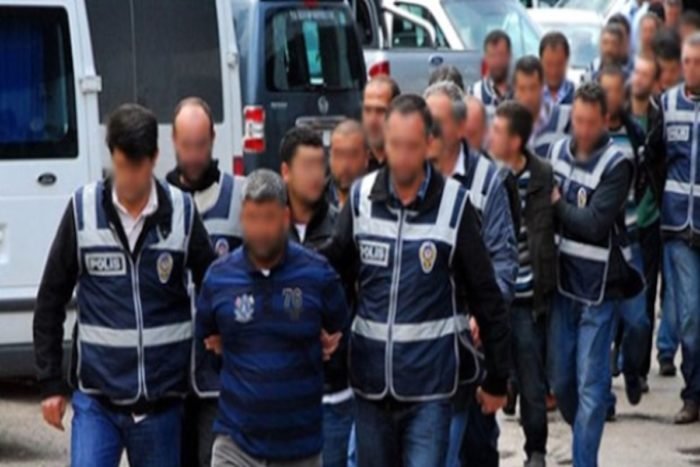The Turkish government detained at least 50 teachers on Tuesday in an Ankara-based probe as part of its massive post-coup witch hunt targeting alleged members of the Gülen movement.
The detentions by police came in 16 provinces across Turkey following the issuance of detention warrants by the Ankara Chief Public Prosecutor’s Office for 79 teachers who used to be employed in schools that were closed by government decree under an ongoing state of emergency over their alleged affiliation with the Gülen movement.
Online news outlet tr724 reported in early March that in the course of one month the Ankara Chief Public Prosecutor’s Office had issued detention warrants for 300 teachers who worked in schools owned by people close to the Gülen movement.
Meanwhile, seven people were detained on Tuesday in Ankara, Uşak, Kütahya, Tekirdağ, Samsun and Antalya provinces as part of a probe based in Tokat over their alleged links to the Gülen movement. It was reported that the detainees comprise three judges, one candidate to become a judge and three graduates of the law faculties.
Also on Tuesday, in an Uşak-based probe, six military personnel, including a major, three noncommissioned officers and an expert sergeant, were detained by police in Uşak, Van, Yozgat, Edirne, Şanlıurfa and Erzincan provinces over alleged links to the Gülen movement.
Police also detained five people, including two police officers and three businessmen in Aksaray province on Tuesday following the issuance of detention warrants by the Aksaray Chief Public Prosecutor’s Office over their alleged links to the Gülen movement.
Police detained nine people on Monday in Manisa, İzmir, Balıkesir, Denizli, Muğla, Kırıkkale, Kocaeli, Konya and Isparta provinces in a probe based in the Turgutlu district of Manisa province. It was reported that police raided 25 locations in these provinces following the issuance of detention warrants by the Turgutlu Chief Public Prosecutor’s Office over their alleged use of the ByLock mobile phone messaging application.
Turkish authorities believe ByLock is a communication tool among followers of the Gülen movement. Tens of thousands of people, including civil servants, police officers, soldiers, businessmen and even housewives, have either been dismissed or arrested for using ByLock since the failed coup attempt on July 15, 2016.
Turkey survived a controversial military coup attempt on July 15, 2016 that killed 249 people. Immediately after the putsch, the Justice and Development Party (AKP) government along with President Erdoğan pinned the blame on the Gülen movement.
Fethullah Gülen, who inspired the movement, strongly denied having any role in the failed coup and called for an international investigation into it, but President Erdoğan — calling the coup attempt “a gift from God” — and the government initiated a widespread purge aimed at cleansing sympathizers of the movement from within state institutions, dehumanizing its popular figures and putting them in custody.
Turkey has suspended or dismissed more than 150,000 judges, teachers, police and other civil servants since July 2016. Turkey’s interior minister announced on December 12, 2017 that 55,665 people have been arrested. On December 13, the Justice Ministry announced that 169,013 people have been the subject of legal proceedings on coup charges since the failed coup.
A total of 48,305 people were arrested by courts across Turkey in 2017 over their alleged links to the Gülen movement, Interior Minister Süleyman Soylu said on Dec. 2, 2017. “The number of detentions is nearly three times higher,” Soylu told a security meeting in İstanbul and claimed that “even these figures are not enough to reveal the severity of the issue.”















